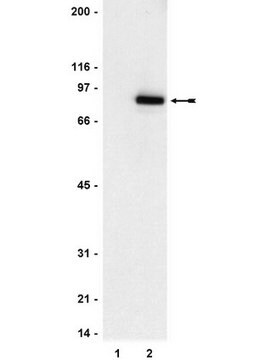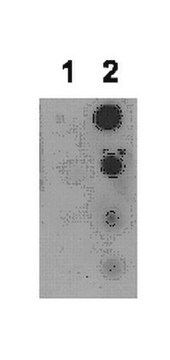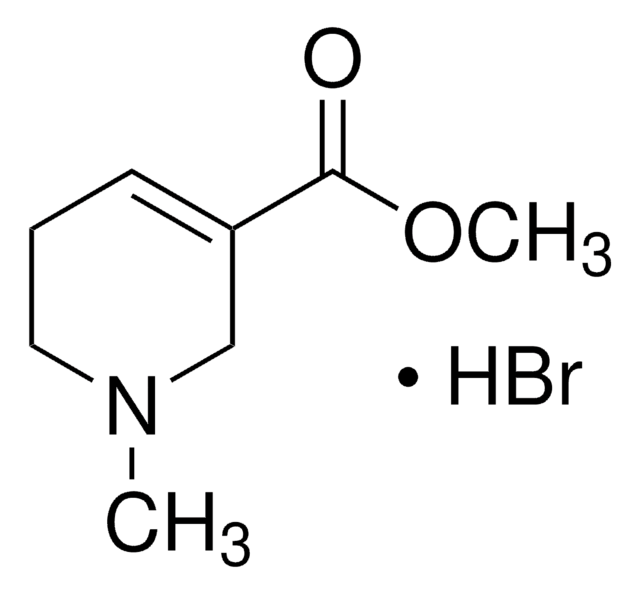05-495
Anti-phospho-STAT5A/B (Tyr694/699) Antibody, clone 8-5-2
clone 8-5-2, Upstate®, from mouse
Sinónimos:
signal transducer and activator of transcription 5A
About This Item
Productos recomendados
biological source
mouse
Quality Level
antibody form
purified antibody
antibody product type
primary antibodies
clone
8-5-2, monoclonal
species reactivity
mouse, sheep, human, rat, bovine
manufacturer/tradename
Upstate®
technique(s)
western blot: suitable
isotype
IgG
NCBI accession no.
UniProt accession no.
shipped in
wet ice
target post-translational modification
phosphorylation (pTyr694/pTyr699)
Gene Information
human ... STAT5A(6776)
General description
Specificity
Immunogen
Application
Quality
Western Blot Analysis: 0.5-2 μg/mL of this lot detected phosphorylated STAT5A/B in lysates from 3T3/NIH cells stimulated with PDGF. 0.5-2 μg/mL of a previous lot detected phosphorylated STAT5A/B in lysates from 3T3/A31 cells stimulated with PDGF and from HeLa cells stimulated with interferon-a (IFN-a).
Target description
Physical form
Analysis Note
IFN-α induced HeLa cells or GM-CSF treated TF-1 cells
Other Notes
Legal Information
¿No encuentra el producto adecuado?
Pruebe nuestro Herramienta de selección de productos.
Storage Class
12 - Non Combustible Liquids
wgk_germany
WGK 1
flash_point_f
Not applicable
flash_point_c
Not applicable
Certificados de análisis (COA)
Busque Certificados de análisis (COA) introduciendo el número de lote del producto. Los números de lote se encuentran en la etiqueta del producto después de las palabras «Lot» o «Batch»
¿Ya tiene este producto?
Encuentre la documentación para los productos que ha comprado recientemente en la Biblioteca de documentos.
Nuestro equipo de científicos tiene experiencia en todas las áreas de investigación: Ciencias de la vida, Ciencia de los materiales, Síntesis química, Cromatografía, Analítica y muchas otras.
Póngase en contacto con el Servicio técnico







